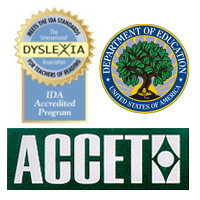How Do Students’ Learn
- The emergence of neuroscience has enabled us to have better understanding of how our students learn. These researchers have created the bridge for us to understand and support students in our classrooms and in our educational therapy sessions.
- Auditory, Visual, Memory, Emotions, Executive Functions… these are all blocks in the Building Blocks of Learning!
- Without a strong foundation, how can we expect our children to perform well academically? When one of these vital pieces is affected, the foundation of learning is shaky.
- Maybe you are a parent of a kid who is working so hard but can’t seem to keep up with her expectations?
- Maybe you are a teacher who has students with holes in their learning foundation.
We are excited to share this theme of Bridging Science to Education at our conference.
We will unpack the Building Blocks of Learning Model as presented by Mather, Goldstein and Eklund in their textbook Learning Disabilities and Challenging Behaviours.
“This model provides a simple framework for explaining why children experience learning and behaviour problems in the classroom.” (Mather, Goldstein & Eklund, 2015, p.7)
Our speakers will share their expertise on various blocks of learning. We are certain you will increase your understanding of why some of students struggle and how you can help them soar!
Learning difficulties can hurt children’s self-esteem. They may feel frustrated and embarrassed or worry about being different from their peers. Here’s what parents can do to help children feel more confident and in control, even when things get tough:
- Kids, even those with no learning issues at all, benefit from learning how to deal with frustration and regulate their emotions.
- Of course we all want to help our children feel competent and positive when it comes to schoolwork, but cheerleading isn’t always the best kind of support. Validate your child’s feelings and try to empathise with what they’re going through.
- Remember, the goal is to help kids keep trying, even when things may not work out. Praise your child’s efforts and let them know that you’re proud of them for working hard, even if the results aren’t perfect
- Research shows that when children have strong relationships with caring adults, they are more likely to be engaged at school and more motivated to succeed academically.
- Connection is protection. Students (and indeed, adults) who are dysregulated or emotionally taxed with stress need mental-health support and wellness initiatives so they can be ready to learn. The pandemic caused stress for many of our learners and parents too!
Parents, teachers and associated professionals, come learn how we identify and help our students become the best that they can be!
Conference Cost
$10
Conference Speakers
Constance Risser, NILD U.S.A. and Lorna McCosh, NILD Zimbabwe
NILD Zimbabwe Conference – 24th August 2024, 9-11am
Venue: St Christopher’s School, Harare
RSVP

